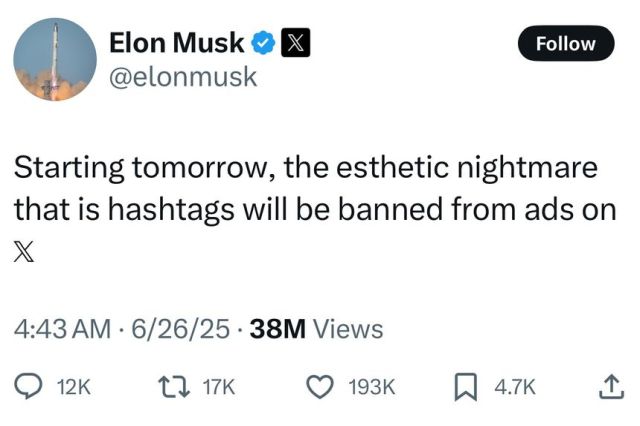Yesterday, Elon Musk announced that X (formerly known as Twitter) will no longer permit hashtags to be used in advertising that appears on the platform. The change was announced by Musk on X. He posted, "Starting tomorrow, the esthetic nightmare that is hashtags will be banned from ads on X."
For years now, hashtags have played an important role on X, allowing for tweets to be categorized around relevant keywords.
But, that's not the only role that hashtags play. In order to comply with the FTC's Guides for the Use of Endorsements and Testimonials in Advertising (and other relevant laws governing truth in advertising), Advertisers and their influencers commonly use hashtags to disclose when posts are sponsored by a brand. For example, in the FTC's FAQs on how to comply with the Endorsement Guides, the FTC provides detailed guidance about the types of hashtags – such as #ad -- that can be effective disclosures in social media.
In its FAQs, the FTC notes, however, that there's "nothing special about hashtags from a disclosure perspective" and that communicating that there is a relationship between a brand and an influencer can be accomplished in other ways as well. The FTC wrote, "'#ad,' 'Ad:', and 'ad' at the beginning of a post are probably all equal."
While this new policy may not impact the use of hashtags in organic posts on X by influencers, if a sponsored post qualifies as an advertisement, then brands and their influencers will need to come up with alternative ways to disclose their relationship. For brands and influencers that have well-established policies – or contracts – that require the use of specific hashtags when posting on X, now is certainly the time to update them.

The content of this article is intended to provide a general guide to the subject matter. Specialist advice should be sought about your specific circumstances.


